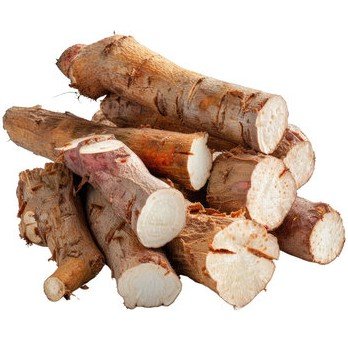Thailand’s cassava exports just got a major boost after a government-led trade mission scored a fresh deal with Saudi Arabia for over 20,000 tons, valued at roughly 136 million baht ($4 million). This breakthrough could bring some much-needed relief and stability to Thai farmers grappling with fluctuating crop prices.
Thai Cassava Finds New Ground in the Saudi Market
The recent delegation to Riyadh and Jeddah wasn’t just a routine trade trip—it was a full-on push by Thai officials, private sector players, and academic experts to convince Saudi buyers that cassava can be a game-changer for their animal feed industry. Surprisingly, many Saudi importers had little clue about cassava’s potential, so the Thai team brought in specialists from Suranaree University of Technology to lay out the nutritional benefits.
It turns out cassava isn’t just another crop—it’s a valuable alternative to traditional grains used in animal feed. This knowledge-sharing session clearly paid off. Big names like Al Sanabel Al Zahabiya Industrial, Arabian Agricultural Services Company (ARASCO), and United Feeds quickly warmed up to the idea, placing a trial order for 20,000 tons right away.
This initial sale feels more like the opening chapter of a longer story. Discussions about pricing and shipping logistics are already underway, hinting at a solid foundation for future partnerships. And that’s exactly what Thailand’s Department of Foreign Trade is hoping for—to establish a foothold in the Middle East that could offer Thai farmers a steadier income stream.

Government Push to Support Farmers and Grow Exports
Prime Minister Paetongtarn Shinawatra and Commerce Minister Phichai Naripthaphan clearly put their weight behind this mission. The goal? To diversify Thailand’s cassava markets and stabilize prices for local farmers who often get squeezed by unpredictable global demand.
Arada Fuangtong, Director-General of the Department of Foreign Trade, highlighted that this deal isn’t just about a single shipment. “We’re aiming to open a new chapter for Thai cassava in the Middle East, creating lasting business relationships that benefit farmers and exporters alike,” she said.
That’s a big deal because Thailand is one of the world’s largest cassava producers. It’s a staple crop for millions of rural farmers, so opening a new export channel could mean better financial security for a lot of people. Plus, cassava is versatile—it’s used in animal feed, starch production, and even biofuel. But right now, this export breakthrough is focused on the feed industry, which has shown promising demand for cassava as a cost-effective and nutritious ingredient.
The Nutritional Edge of Cassava in Animal Feed
So, why is cassava suddenly catching eyes in Saudi Arabia? Well, animal feed producers there are looking for alternatives to traditional grains like corn and barley. Cassava offers a solid starch content and digestibility that make it attractive for livestock diets.
Here’s a quick rundown:
-
Cassava starch is a highly digestible carbohydrate source.
-
It has low protein but is often blended with protein-rich ingredients.
-
It’s drought-tolerant and can be produced in large volumes at a competitive cost.
This makes cassava a practical choice for feed producers trying to manage costs without sacrificing quality. In fact, experts from Suranaree University emphasized that using cassava can reduce feed prices, which is a big win for both producers and farmers downstream.
This table sums it up nicely: cassava’s starch content and digestibility make it a promising feed ingredient, even if it needs to be supplemented with protein sources.
What This Means for Thai Farmers and Exporters
The Saudi deal is more than just a number on paper—it could be a lifeline. Farmers who grow cassava have long faced market uncertainty, with prices swinging wildly based on global supply and demand. This stable, new export channel offers hope for better price predictability.
Thai exporters are also excited. By tapping into the Middle Eastern market, they’re diversifying beyond traditional buyers like China and the European Union, spreading risk and expanding opportunities.
The Department of Foreign Trade is closely watching how this deal plays out and is keen to explore more markets in the region. If all goes well, the Middle East might become a reliable destination for Thai cassava, which could shift the landscape for agricultural exports in Southeast Asia.
For now, everyone’s eyes are on how the shipping, pricing, and ongoing talks unfold. But one thing’s clear: Thai cassava has a fresh shot at carving out a new space on the global map, and that’s a win for farmers, exporters, and Thailand’s agricultural economy overall.
